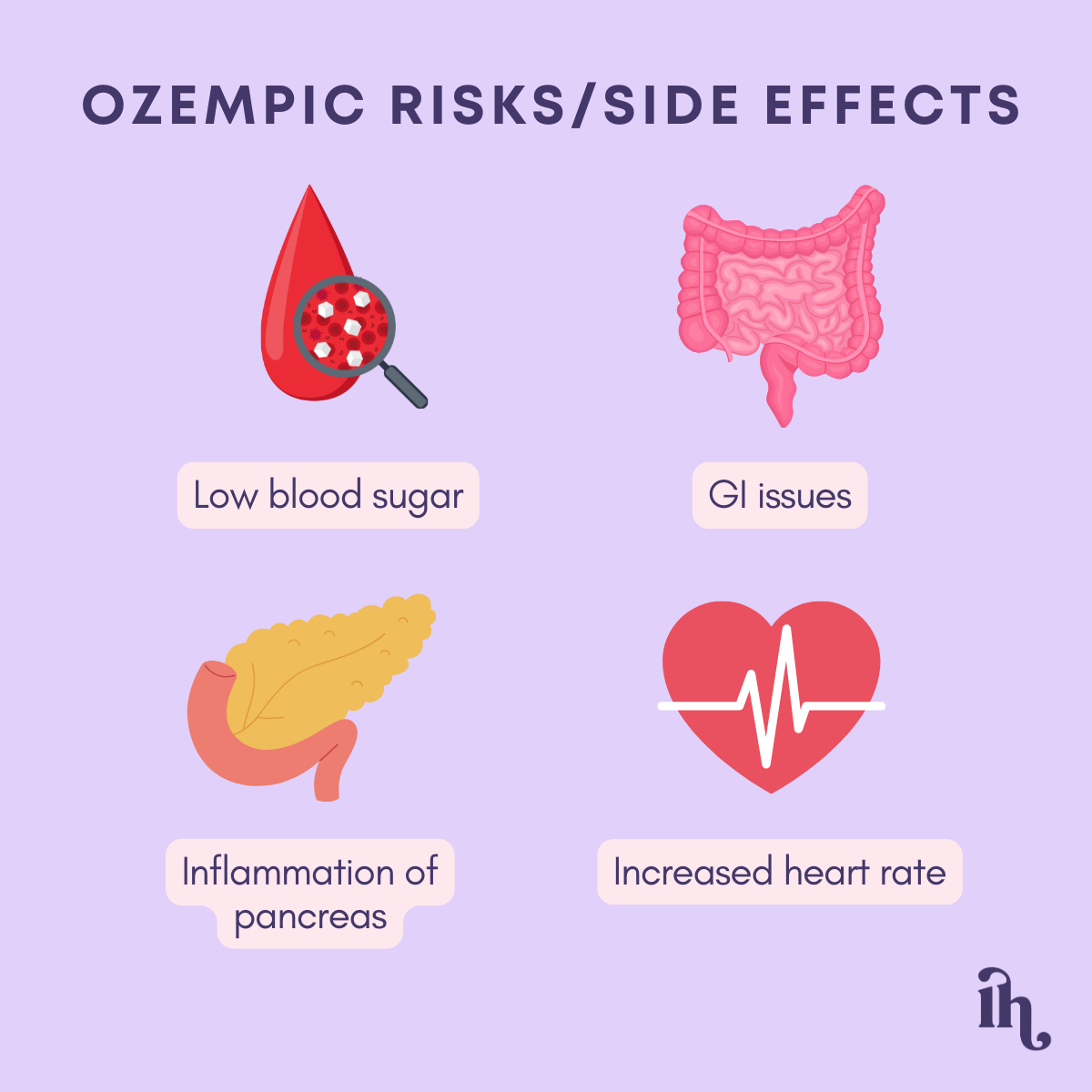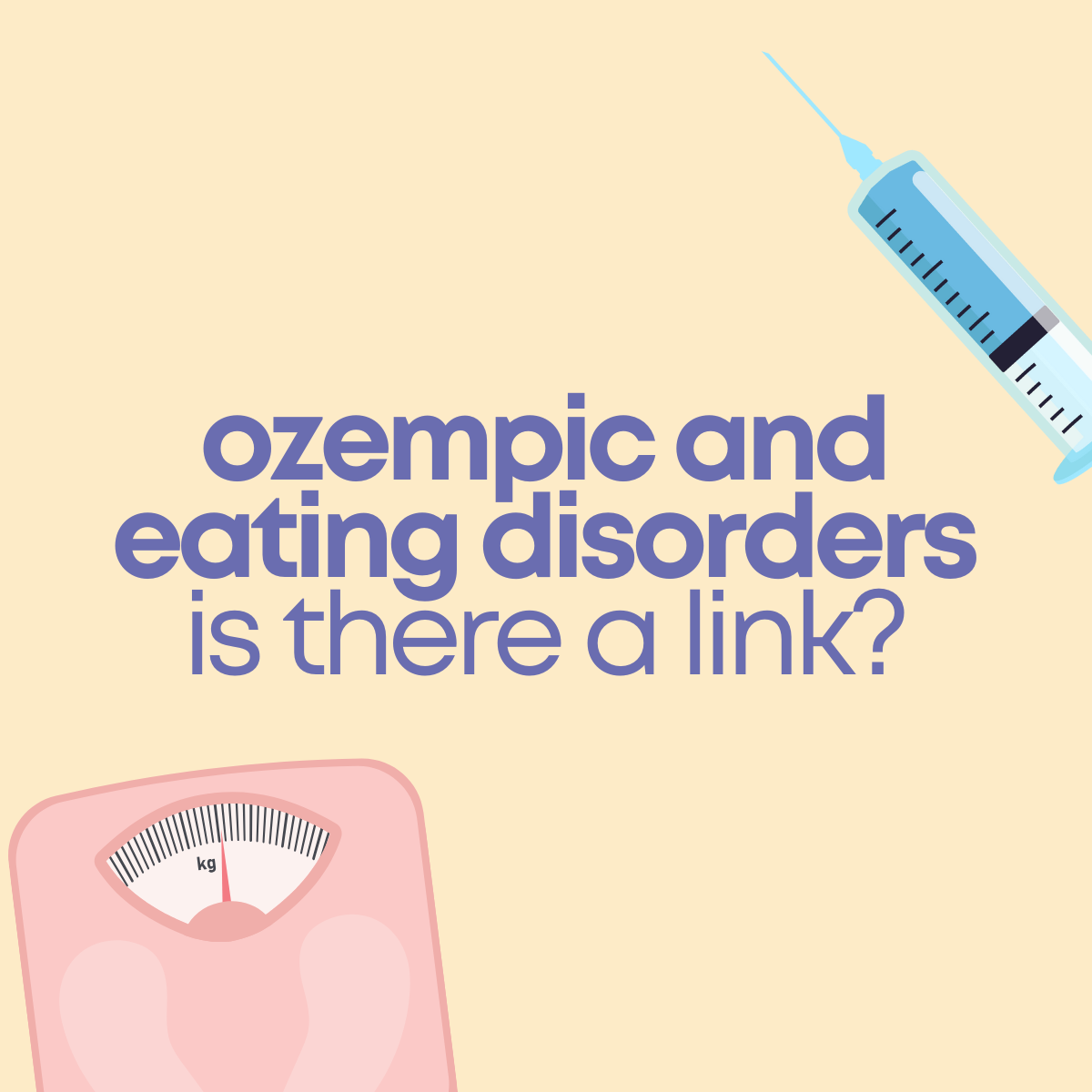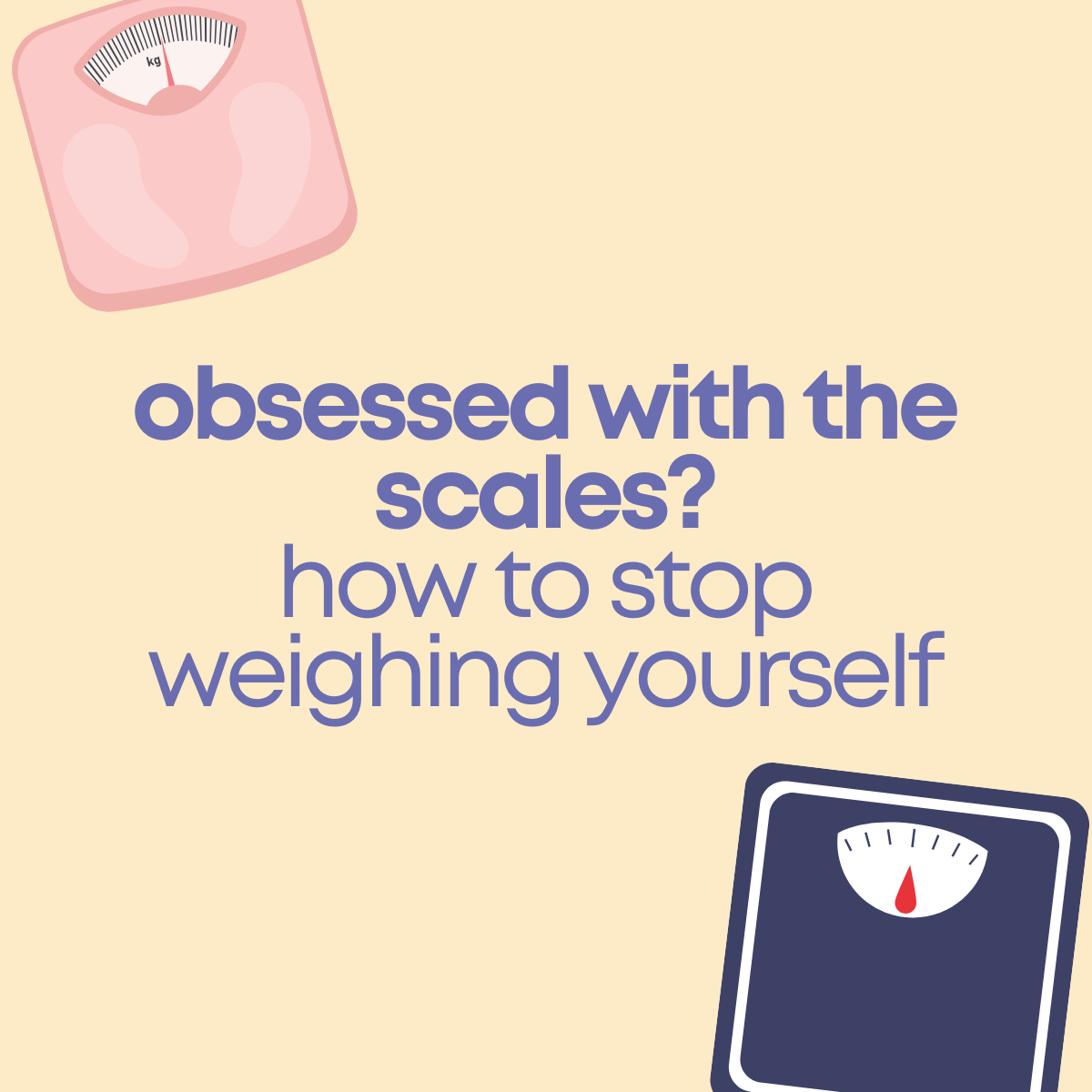atingSemaglutide, better known under the brand name Ozempic, is a drug used for managing Type 2 Diabetes.
Ozempic has recently gained popularity for being used off-label to aid weight loss, due to its appetite suppressing effects.
The drug is quickly becoming a buzzword in diet culture, with celebrities and high-profile influencers boasting their weight loss results after using the medication.
In a society obsessed with diet trends, weight loss and ‘quick fixes’, it’s no surprise that Ozempic is becoming a commonly recognised pharmaceutical name.
However due to weight loss drugs soaring in popularity, concerns quickly beginning to surface around the relationship between Ozempic and eating disorders.
What Is Ozempic?
The On-Going Issue With Weight Loss ‘Quick Fixes’
The Risks Of Taking Ozempic
The Rise Of Ozempic in Diet Culture
Eating Disorders
Ozempic and Eating Disorders
Weight Loss Medications – It’s A Slippery Slope
Summary
What Is Ozempic?
Ozempic is a brand name of the drug semaglutide. It is primarily used to manage Type 2 Diabetes to improve blood sugar control. The drug is administered through subcutaneous injection, usually once a week (1).
It works by:
- Increasing insulin secretion: This encourages sugars to be taken up by the cells after eating a meal
- Suppressing glucagon release: Glucagon is a hormone that can increase blood sugar levels by breaking down any stored glucose in the liver
- Slowing down the emptying of the stomach: This can reduced appetite
The On-Going Issue With Weight Loss ‘Quick Fixes’
With Ozempic being praised as the latest weight loss ‘quick fix’, there are a few common themes that we often see with other rapid weight loss trends.
One of the main questions that come to mind is – is it sustainable?
Ozempic has been shown to aid in weight loss in adults, however studies have shown that not only does this weight loss begin to plateau over time, but weight gain often occurs once the drug is no longer being used (2, 3).
Studies that followed participants one year after stopping the use of Ozempic found that beyond weight regain, any cardiometabolic improvements had also reverted back to baseline (4).
The Risks Of Taking Ozempic
Like many medications, taking Ozempic or other semaglutide drugs does not come without potential for adverse side effects.
Some of these include: (5, 6):
- Gastrointestinal issues, including nausea, vomiting and diarhea
- Increased heart rate
- Injection site and allergic reactions
- Inflammation of the pancreas
- Hypoglycaemia or low blood sugar
More recently, experts are raising more concerns about the risks associated with taking Ozempic and eating disorders.

The Rise Of Ozempic in Diet Culture
Diet culture places a high value on thinness. It glorifies certain body types, and stigmatises others.
The popularity of Ozempic and weight loss medications only highlights the deep and underlying societal issue that continues to push the thin ideal. Achieving this ideal is unattainable, if not impossible for the majority of the population.
By promoting restrictive or disordered eating behaviours, diet culture leads us to believe that we will be better, more successful, and more valued if our body aligns with these unrealistic beauty standards.
Media is a huge contributor to diet culture. Thanks to many celebrities and high-profile influencers using weight loss drugs, it’s no surprise there is such a spotlight on Ozempic.
Combine increased media coverage and celebrity influence, a proposed ‘weight loss quick-fix’ and significant pressures to achieve a certain body ideal – we have the perfect storm to promote a poor relationship with food and body.
Research has shown that all these factors increase the risk of developing an eating disorder (7).
Eating Disorders
Eating disorders are complex and serious mental health conditions.
While there are several different types of eating disorders, desire to control body weight and shape can be a commonality between the different diagnoses.
They can affect anyone regardless of age, gender, or background.
Types of Eating Disorders
Eating disorders are diagnosed by a qualified health professional using the DSM-5 criteria.
Different types of eating disorder diagnoses include:
- Anorexia nervosa
- Bulimia nervosa
- Binge eating disorder
- Avoidant/Restrictive Food Intake Disorder (ARFID)
- Other Specified Feeding and Eating Disorders (OSFED)
- PICA
Eating disorders can lead to severe physical health complications and have a significant impact on emotional well-being.
Risk Factors for Developing an Eating Disorder
Eating disorders are complex mental health conditions, with many potential factors increasing the risk of developing an eating disorder.
These risk factors can come from a variety of different sources. These may include:
- Genetics and Family History: People with a family history of eating disorders or other mental health conditions may be at higher risk.
- Psychological Factors: Conditions such as perfectionism, low self-esteem, anxiety disorders, and depression can increase vulnerability.
- Dieting and Weight-Control Behaviors: Extreme dieting, fasting, or engaging in frequent weight-control behaviors can predispose individuals to developing eating disorders.
- Body Image Struggles: Dissatisfaction with body shape or size, often influenced by societal pressures and media portrayals of idealized bodies, can contribute to disordered eating behaviors.
- Trauma: History of trauma, abuse, or significant life changes can contribute to the onset of eating disorders as a coping mechanism.
- Personality Traits: Traits such as impulsivity, rigidity, or difficulty expressing emotions may increase susceptibility.
- Sports or Professions: Certain sports or professions that emphasize weight, body shape, or performance (e.g., ballet, gymnastics, modeling) can heighten the risk.
- Peer Influence: Social pressures, including peer pressure or a desire to fit in with a specific group.
- Gender Identity: While traditionally associated with females, eating disorders can affect individuals of all genders, though prevalence rates may differ.
Ozempic and Eating Disorders
The increased popularity of off-label weight loss drugs such as Ozempic can be highly problematic.
Not only do they continue to push the thin narrative and contribute to weight stigma, but they may also increase the risk of developing or exacerbating eating disorders.
Research specifically exploring the relationship between Ozempic and eating disorders is limited. It is however suggested that Ozempic may exacerbate or contribute to the development of an eating disorder (8).
The Inappropriate Prescription of Ozempic
People struggling with an eating disorder have the potential to misuse weight loss drugs such as Ozempic.
Some (9) have even shown that weight loss medication is being prescribed to people struggling with eating disorders (such as binge eating disorder) as a means to treat the eating disorder.
This can be deeply problematic, as binge eating episodes typically come as a result of restriction. Therefore, it seems counterintuitive to treat one of the underlying causes of restriction – with more restriction via weight loss medication.
Eating disorders are complex mental health conditions that often co-exist with other conditions, such as anxiety and depression. They typically require treatment from a specialised multidisciplinary team, including a psychologist, dietitian and GP.
Due to the complexity of eating disorders, prescribing a weight loss medication for eating disorder treatment therefore completely misses the mark.
Not only does it neglect the complexities of navigating eating disorder recovery, but it also validates the intense desire for weight loss for the person suffering, while further exacerbating weight stigma.
While some doctors are knowingly prescribing weight loss medications for eating disorder treatment, there are raising concerns around people silently suffering with an eating disorder accessing these medications.
The Prevalence of Eating Disorders
It is estimated the approximately one million people living in Australia are experiencing an eating disorder (10). This number is greatly alarming, and yet many unfortunately believe it to be under-reported.
Due to the combination of the prevalence of eating disorders, coupled with many people not seeking treatment for their eating disorder, many people may be accessing these medications without knowing or disclosing their eating disorder to their doctor.
This means doctors may be exacerbating existing eating disorder behaviours unknowingly.
Unfortunately, there is currently no screening process in place for flagging disordered eating behaviours or a potential eating disorder before prescribing weight loss medications.
Weight Loss Medications – It’s A Slippery Slope
Research has shown that dieting is one of the strongest risk factors associated with developing an eating disorder (7).
Using weight loss medication in order to suppress appetite and promote weight loss can lead to similar serious risks.
Unfortunately, accessing weight loss medications and/or engaging in dieting behaviours can lead people down a slippery slope of disordered eating and poor body image.
These combined risk factors have the potential to spiral into developing an eating disorder.
Summary
Researchers primarily developed Ozempic and other semaglutide medications to manage blood sugar levels in people living with Type 2 Diabetes
However, doctors are increasingly prescribing Ozempic off-label as a means to aid with weight loss.
Diet culture, celebrities and high-profile influencers have brought Ozempic into the spotlight. This has lead to claims suggesting it to be the latest weight loss ‘quick fix’.
Due to this rapid rise in popularity, concerns have also began to be raised around the relationship between Ozempic and eating disorders.
Written by: Imbodi Health Dietitian Jade Wrigley





Comments +